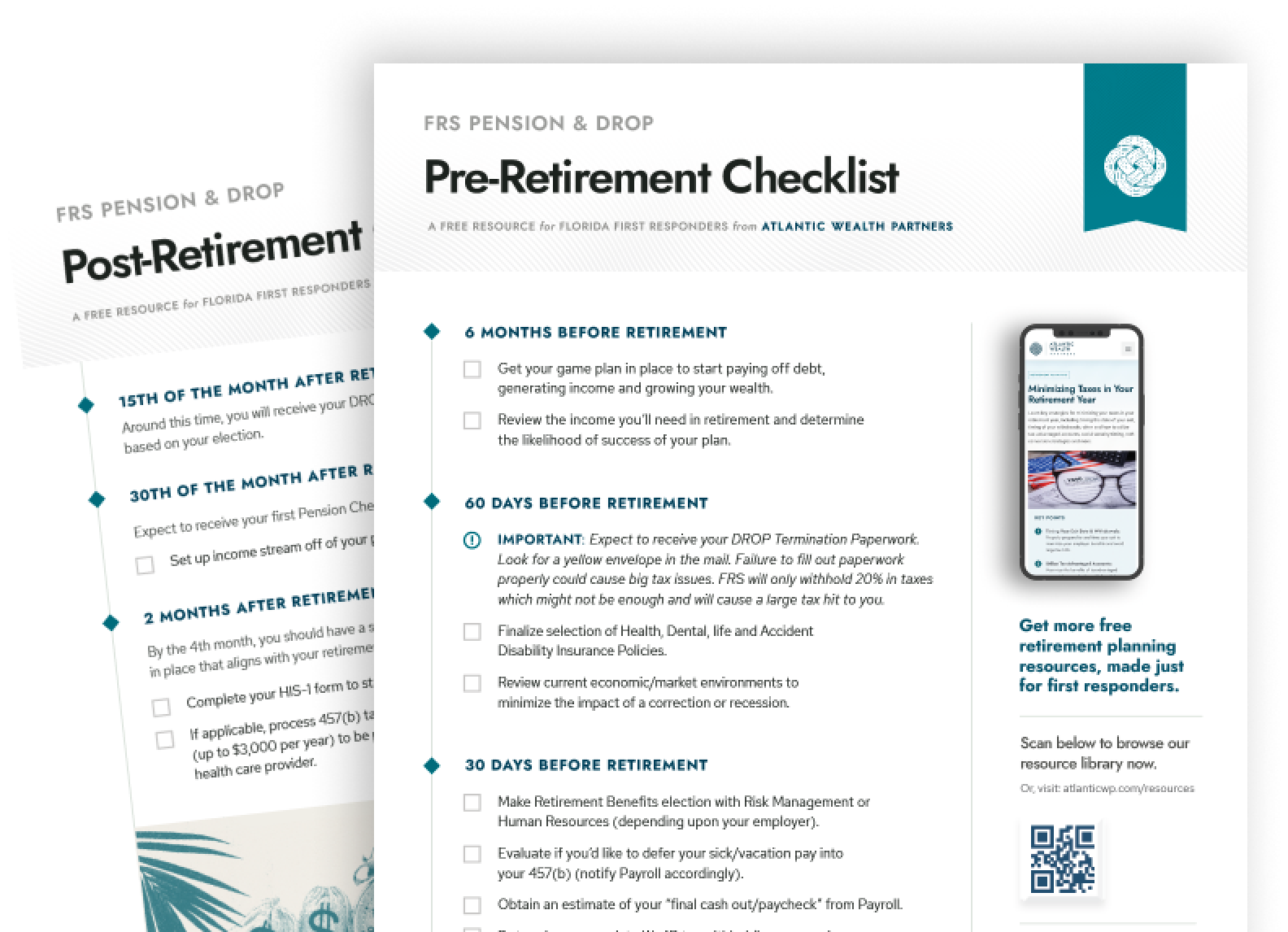As the year 2020 comes towards an end we are fielding more questions surrounding asset protection for sworn officers if qualified immunity is lost. There are many layers to asset protection. The best strategy is to address all potential concerns, that way if your qualified immunity is compromised you and your family are protected.
Once you already have a creditor it will likely be ‘too late’ as you could be ‘structuring to defraud a creditor’ and any changes made could be unwound.
With everything that has transpired in 2020, and the “Defund the Police” movement, qualified immunity has come under fire, and Democrats in Congress are calling to take away qualified immunity.
Republicans, on the other hand, are more in support of decertifying police officers who engage in misconduct instead of ending qualified immunity. What will most likely happen is a compromise between the two stances.
So, what happens if part or all of your qualified immunity is taken away? Do you have any way to protect your assets?
Background on Qualified Immunity
The Qualified Immunity Act is a legal doctrine that protects law enforcement officers from lawsuits regarding their conduct. As a law enforcement officer, you cannot be held personally liable for your actions unless if you violate clearly established federal laws. The qualified immunity act is intended to protect you from civil lawsuits so you can do your job.
The Supreme Court implemented Qualified Immunity in 1967 as a modest exception for public officials who had acted in good faith and believed that their actions were authorized by law. In 1982 in Harlow v. Fitzgerald, the Court expanded the protection, removing the “good faith” assumption and put the requirement on the victim to show their right was “clearly established” by a prior case. That is currently where the law remains with Qualified Immunity. A victim must identify previous court results for cases that had identical context and content.
Easy Ways to Better Protect Your Assets
There are many strategies that non-law enforcement individuals, who do not have qualified immunity, can utilize to protect their personal assets. Some of these strategies are below.
Homestead your primary residence.
In the State of Florida homesteaded property is creditor protected. Property is not automatically homesteaded though, you have to complete Form DR-501 on the Florida Department of Revenue website to apply for the exemption or complete the application process through your local property appraiser’s office.
Quick Facts: Florida Homestead Properties
How Florida defines them
The Florida Constitution defines a Florida homestead property as one’s principal place of residence, subject to lot size limitations.
Municipality Lot Size
Residences within a municipality are protected on lots up to one-half acre.
Rural Property Protection
Residences outside a municipality are protected on contiguous property up to 160 acres.
Contiguous Property Inclusion
All contiguous property up to 160 acres are included in homestead, even if the contiguous property has separate legal descriptions and tax numbers.
No Property Value Restrictions
There are no restrictions on the square footage of the physical residence or the value of the property, regardless of location.
Pro-Rata Protection for Larger Properties
If the homestead exceeds the ½ acre or 160-acre size limitations, protection is allocated pro-rata to the total property value.
Retirement Account Creditor Protection
Contributing to retirement accounts adds additional creditor protection in the State of Florida.
Close gaps in coverage.
Ensure you have adequate liability coverage on your auto & homeowner’s policies and that you have no gap in coverage with an umbrella policy by having the following coverages:
Auto Insurance
- Minimum of $250k/$500k or $300k/$300k coverage for liability and uninsured/underinsured motorists.
- Recommend a minimum of $100k coverage for property damage
Homeowners Insurance
- Minimum of $300k liability coverage. Note: Some condos limit liability coverage to $100k. In this case, you would want a bridge/gap policy for the gap in coverage before the umbrella protection begins.
Umbrella Policy
- Utilize a personal liability umbrella policy with at least $1M in coverage. Note: Depending upon your income/assets, this may need to increase.
Check your vehicle title(s).
Confirm that only the primary driver’s name is on the title of each vehicle you own. Remember: Joint title = joint liability. Also, ensure that your names are not on the title of adult children’s cars. If they get in an accident, you could be exposed.
Optimize the titling of you assets.
Ensure that you are own all bank accounts, financial assets, business interests, and personal property as Tenants By the Entirety (TBE) or in a Tenants By The Entirety Trust when married.
- This titling can only be used between spouses. This titling gives both parties an equal and undivided interest in the property, which can protect against a creditor of one spouse who would try to break the tenancy to have a claim against the assets.
- This title does not provide asset protection for creditor claims against both spouses.
But, what if I put my assets in a trust?
There are aspects of your life that qualified immunity and the basic asset protection strategies listed above do not cover. This is where proper estate planning comes into play.
There is a lot of confusion surrounding using trusts for asset protection – so much, that most professionals don’t even understand how the different variations of Trusts work. There are many different types of trusts and we will dive into some of the most common ones below:
Individual Revocable Living Trust
This trust is created while alive and can be changed by the creator of the trust. Assets held in an individual revocable trust avoid probate and provide privacy. Assets held in an individual revocable trust do not qualify for asset protection for the Grantor/Owner because the terms of the trust can be changed at any time. You remain in control of these assets.
TBE (or TbyE) Trust
If you want to have creditor protection while still being able to make changes to your trust then a TBE trust might be the best course of action for you. This titling can only be used for a trust for spouses. The death of one spouse removes the TBE nature of the trust, which removes the asset protection benefits. The surviving spouse can “Disclaim” their interest in the TBE property and allow the decedent’s half of the property to pass into a protected trust for the spouse or other family member to retain asset protection.
How do you know if a trust is a TBE trust? In the State of Florida, a trust is considered to be a TBE trust if the six unities of ownership are present. These are the same requirements of directly held Tenants by the Entireties protection.
The six unities of ownership are:
- Unity of possession (joint ownership and control)
- Unity of interest (the interests in the account must be identical)
- Unity of title (the interests must have originated in the same instrument)
- Unity of time (the interests must have commenced simultaneously)
- Survivorship (100% must pass entirely to the spouse if living)
- Unity of marriage (the parties must be married at the time the property became titled in their joint names) Source: SouthFloridaTrial
Note: Not all Joint Revocable Trusts have this protection.
Gifting Trust
A Gifting Trust provides asset protection because the assets that are moved into the trust are considered an irrevocable gift. A Gifting Trust is used when you want to leave an inheritance to your heirs, while also removing assets from your estate (and sometimes your control)– and thus providing creditor protection for the assets.
Post-Death Planning
Leaving assets directly to your heirs is not the most beneficial way to leave an inheritance. Rather, utilizing sub-trusts within your living trust provides vast benefits.
Typically, when the grantor passes away, their trust creates sub-trusts for each beneficiary and allocates their share of the trust to each of their respective sub-trusts. The beneficiary then becomes the Trustee (or Co-Trustee) of their sub-trust.
The sub-trusts transfer the assets outside of probate (privately) to your heirs and are not subject to creditors, predators, divorce or estate taxes of the beneficiary.
In addition, the trust is likely the best way for your heirs to receive an inheritance because it provides privacy with your financial affairs for anyone who might be interested to see what you left to your family. This is especially important in your line of work. You don’t want somebody who has a personal vendetta against you to see how much money you left your loved ones.
Sub-trusts are available for all trust types.
The Bottom Line
With all of the uncertainty currently surrounding Qualified Immunity, and in general, the increasing litigation risks of the society we live in, you want to be proactive and make sure you are protected. You’ve worked hard to get where you’re at. Don’t let someone take it away.
WORK WITH AWP
We help first responders protect their assets.
We specialize in helping Florida law enforcement families retire with confidence. We also have a segment of our business where we help devise very complex estate, asset protection and tax plans for ultra-high-net-worth families. We utilize this knowledge and apply it to the needs of our first responder clients. We are not attorneys and we do not draft estate planning documents, but we help clients think through their family dynamics and implement the best strategies available to protect their families.



